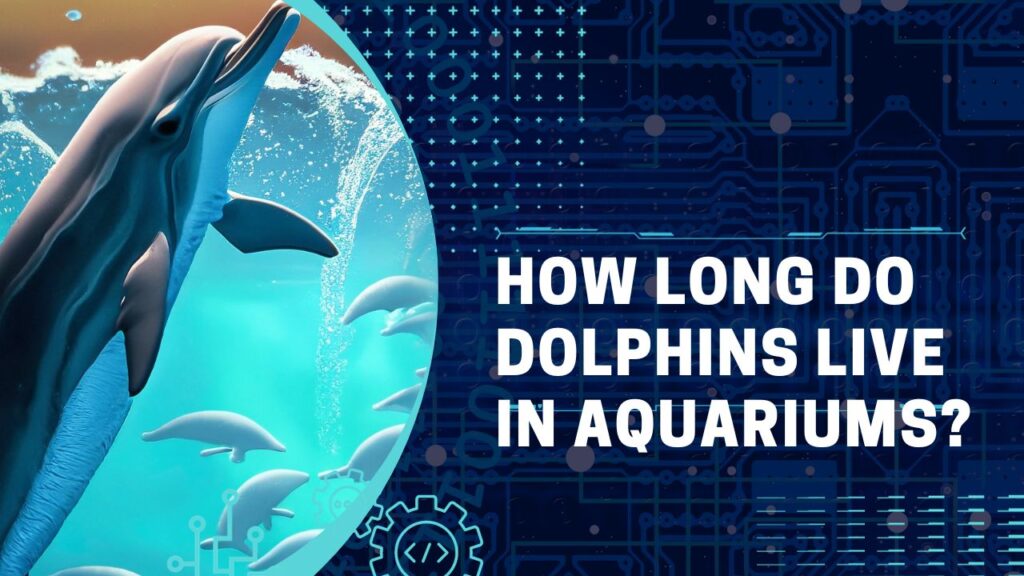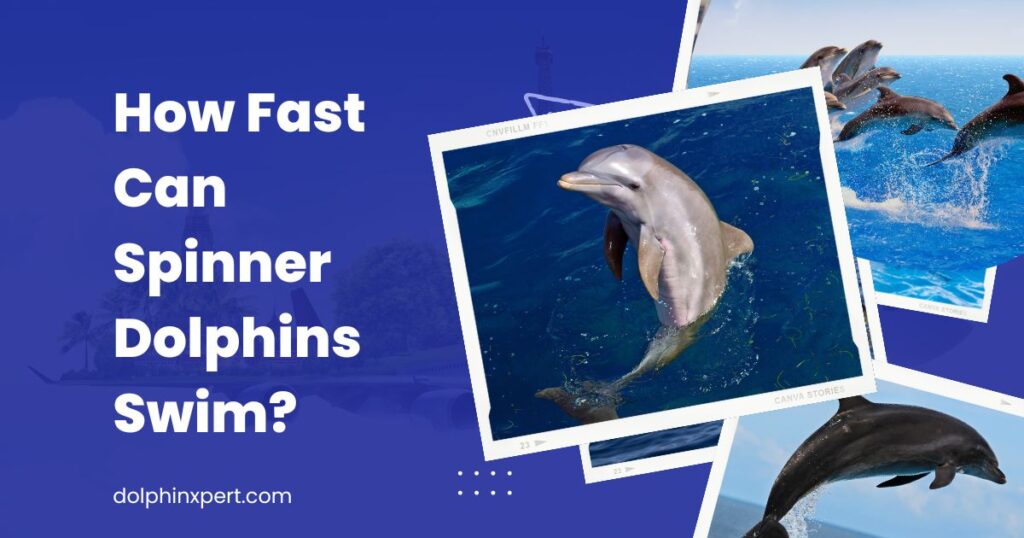Last updated on November 28th, 2023 at 01:45 pm

Why Do Dolphins Die In Captivity? Dolphins die in captivity for a number of reasons such as stress & anxiety, inadequate space, poor water quality, unnatural diet, and so on.
Many people consider dolphins to be among the most charming and intelligent marine animals.
They have won the hearts of people all across the world with their lively demeanor and seemingly never-ending smiles.
But the lives of these amazing marine mammals tragically change when they are housed in captivity.
This blog article investigates the moral ramifications of keeping dolphins in captivity and addresses the question of “why do dolphins die in captivity.”
Table of Contents
- 1 Why Do Dolphins Die In Captivity?
- 2 Do Dolphins Suffer In Captivity?
- 3 Do Dolphins Get Sad In Captivity?
- 4 Are Dolphins Happy In Zoos?
- 5 Is It Cruel To Keep Dolphins In Captivity?
- 6 Why Should Dolphins Not Be In Captivity?
- 7 How Long Do Dolphins Live In Captivity?
- 8 Dolphins In Captivity Pros And Cons?
- 9 Frequently Asked Questions (FAQs)
- 10 Conclusion: Why Do Dolphins Die In Captivity?
Why Do Dolphins Die In Captivity?
Numerous factors, including stress and anxiety, a lack of space, poor water quality, unusual food, and others, contribute to the death of dolphins kept in captivity.
To be honest, compared to their wild counterparts, they live far shorter lives in captivity due to a variety of issues.
The following are the causes of dolphin deaths in captivity:
Stress and Anxiety
Dolphins are clever, highly sociable animals who enjoy the freedom of the wide ocean and social interactions.
They are frequently kept in tiny aquariums in captivity, which causes tension and anxiety.
Dolphins kept in captivity die from illnesses brought on by weakened immune systems, which are weakened by ongoing stress. [Why Do Dolphins Die In Captivity?]
Inadequate Space
Dolphins swim freely in the broad ocean, a far cry from the cramped quarters of confinement tanks.
Insufficient room can cause them to bump against tank walls and other dolphins, which can cause physical harm and long-term health problems.
Poor Water Quality
It can be difficult to maintain water quality in captivity.
Dolphins kept in captivity may experience respiratory troubles, skin disorders, and general health decline due to exposure to high concentrations of pollutants and contaminants.
Unnatural Diet
Dolphins kept in captivity are frequently fed an artificial diet of frozen fish rather than the diversity of live fish they would naturally catch.
Health issues and dietary deficits may arise from this. [Why Do Dolphins Die In Captivity?]
Disease
Compared to wild dolphins, captive dolphins are more prone to illness. This is due to the fact that stress weakens their immune systems and exposes them to new infections from other dolphins living in the facility.
The most prevalent illnesses that affect dolphins kept in captivity are skin infections, encephalitis, and pneumonia.
Injury
In captivity, dolphins are prone to self-harm, particularly in limited enclosures or tanks. They may run into one another, swim into the tank’s walls, or become entangled in underwater things. A wound may become infected or cause other health issues.
Drowning
Dolphins can drown in captivity if they are unable to reach the surface to breathe. This can happen if they are sick or injured, or if they are trapped in a net or other object.
Inbreeding
Many dolphins in captivity are bred from a small number of individuals, which can lead to inbreeding problems.
Inbreed dolphins are more likely to have genetic defects and health problems. [Why Do Dolphins Die In Captivity?]
Do Dolphins Suffer In Captivity?
It’s true that captive dolphins suffer. Numerous scientific studies demonstrate that dolphins are extremely gregarious and intelligent animals who flourish in their large and complicated natural habitat.
Dolphins go through a great deal of stress when kept in cramped enclosures or tanks.
Numerous physical issues, such as compromised immune systems, digestive issues, reproductive abnormalities, and psychological issues including sadness, anger, and boredom, can be brought on by stress.
Here are some of the ways in which dolphins suffer in captivity:
Physical health issues: Dolphins kept in captivity are more susceptible to respiratory infections, skin conditions, and digestive issues, among other physical health issues.
Additionally, there is a higher chance that they will sustain injuries from collisions with one another or the tank walls.
Psychological issues: Boredom, sadness, and hostility are among the psychological issues that captive dolphins are more likely to experience.
These issues can take many different forms, such as aggressive behavior toward other dolphins, self-harm, and stereotypical behaviors like repeated swimming patterns.
Social deprivation: Dolphins are gregarious creatures who require interaction with other dolphins to maintain good health and happiness.
Dolphins held in captivity are frequently housed in small groups with people they do not know well. Stress and social strife may result from this.
Unnatural habitat: Dolphins kept in captivity are kept in tiny aquariums or enclosures that bear no resemblance to their native surroundings.
Boredom and dissatisfaction can result from this lack of enrichment and excitement.
See Also: Are Dolphins Happy In Captivity? Unlocking the Secrets
Do Dolphins Get Sad In Captivity?
Yes. In confinement, dolphins do feel bad about themselves, including melancholy.
Depression and other types of sadness might result from the conditions they experience in captivity, such as cramped quarters, a lack of mental stimulation, and social isolation.
Several arguments in favor of depression in captivity include:
Stereotypical behaviors: It is thought that stress and frustration are the causes of the repeated and strange behaviors that captive dolphins frequently exhibit.
Self-destructive behavior: Extended isolation in tiny tanks can cause melancholy and self-destructive actions, like biting on gates and walls or bashing one’s head against the tank walls.
Antidepressant medicine: To lessen the frustration of being in captivity, many captive dolphins are routinely treated with ulcer medication or antidepressant medication.
Different personalities: It has been shown that dolphins have unique personalities. They also share similarities with humans and great apes in terms of their social and cooperative nature.
Their misery and annoyance may be exacerbated by their lack of stimulation and social connection when they are in captivity.
Seaside sanctuaries: Animal welfare organizations have applauded the concept of establishing year-round, protected seaside sanctuaries for dolphins, citing the benefits to the species’ complex needs and a more natural habitat. [Why Do Dolphins Die In Captivity?]
See Also: How Do Dolphins Show Sadness? Behind the Smile
Are Dolphins Happy In Zoos?
Dolphins are not happy in zoos. Some contend that because of their interactions with humans and the care they receive, confined dolphins can feel somewhat happy.
However, others think that the conditions of captivity are intrinsically harmful to the dolphins’ well-being.
The overwhelming body of research indicates that dolphins in zoos do not live happy lives. Going on a wildlife tour is the finest way to see dolphins in their natural habitat.
Is It Cruel To Keep Dolphins In Captivity?
Yes, it is generally agreed upon that keeping dolphins in captivity is inhumane. They suffer and live shorter lives as a result of their confinement, stress, and restrictions on their normal habits.
Because of these worries, a lot of nations and organizations have outlawed or severely restricted dolphin captivity.

Why Should Dolphins Not Be In Captivity?
Dolphin captivity is unethical and morally dubious for a number of reasons:
Cruelty: Dolphins suffer both physically and mentally when kept in captivity.
Normal Habits are Disrupted: Dolphins are no longer able to hunt or travel great distances, two of their normal habits.
Conservation Concerns: By generating a market for captive dolphins, captive breeding schemes may unintentionally destroy wild populations.
Education and Conservation: By emphasizing the observation of dolphins in the wild and the preservation of their natural habitats, education and conservation initiatives can be more successful. [Why Do Dolphins Die In Captivity?]
How Long Do Dolphins Live In Captivity?
The longevity of captive dolphins is significantly lower than that of their wild counterparts.
While some dolphin species can live between 30 and 50 years in the wild, they may only live an average of 5 to 25 years in captivity.
Dolphins In Captivity Pros And Cons?
The overwhelming agreement among specialists is that the disadvantages of captivity far outweigh any potential benefits.
However, some people argue that it can offer educational opportunities and scientific insights. Dolphins’ welfare is compromised by captivity, which is why it should be avoided.
Here is a table summarizing the pros and cons of keeping dolphins in captivity:
| Pros of Keeping Dolphins in Captivity | Cons of Keeping Dolphins in Captivity |
| Education and Research Opportunities | Ethical Concerns |
| Conservation and Breeding Programs | Health and Welfare Issues |
| Economic Benefits | Limited Natural Behaviors |
| Accessibility to the Public | Public Safety Risks |
| Animal Welfare Improvements | Difficulty in Replicating Natural Environment |
| Shorter Lifespans |
Frequently Asked Questions (FAQs)
Are There Any Organizations Working To Improve Conditions For Captive Dolphins?
Yes, a number of organizations fight to enhance the living circumstances and promote the welfare of captive dolphins. Some even concentrate on saving and healing dolphins in preparation for their eventual release back into the wild.
Can Dolphins Be Successfully Rehabilitated And Released Into The Wild After Being In Captivity?
Programs for rehabilitation and release have demonstrated success in certain instances, but they can be difficult because of the psychological and physical strains that captive dolphins endure. Every case is different.
Conclusion: Why Do Dolphins Die In Captivity?
Dolphins in captivity are tragically dying young as a result of a system that puts entertainment before animal care.
Dolphins in captivity suffer both physically and psychologically, as evidenced by the fact that their lifespans are far shorter than those of their wild counterparts.
The more we learn about these sentient animals, the more we realize that conserving and observing dolphins in their natural environments is the greatest approach to honoring and preserving them—rather than keeping them in tanks for our entertainment.
Endorsing initiatives that advance the conservation and well-being of dolphins in their natural habitat is the ethical and humanitarian decision.

Mr. Das, a certified pharmaceutical scientist, holds a Bachelor of Science in Pharmaceutical Sciences and passionately contributes to dolphin conservation as a member of the committee in Bangladesh.


